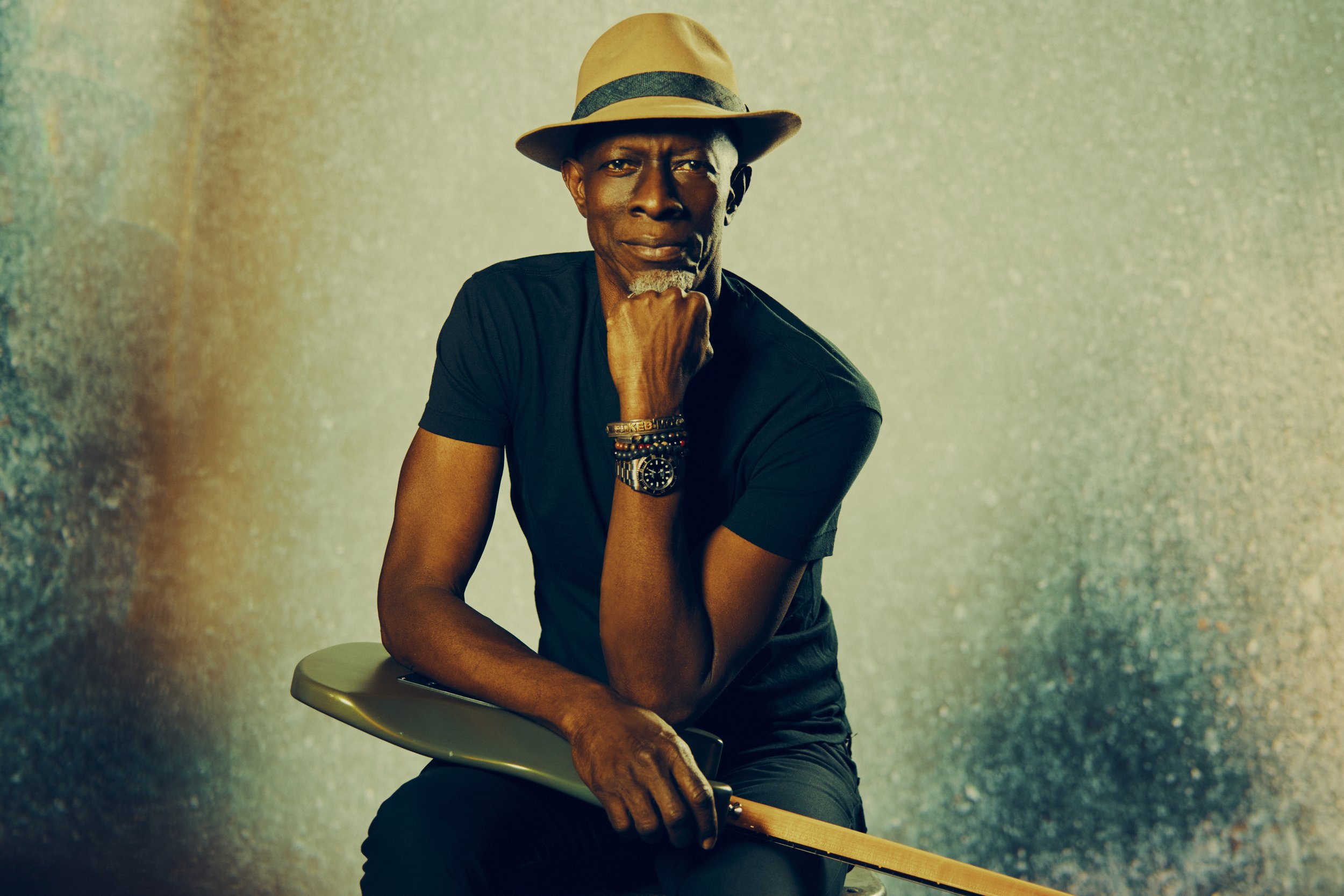10 minutes with Blues Icon Keb’ Mo’
JEREMY COWART
Keb’ Mo’ is a five-time Grammy®- winning singer, songwriter, and blues guitarist who will bring his talents to the Mahaiwe Performing Arts Center in Great Barrington on June 15, at 8 p.m. Born Kevin Roosevelt Moore, Keb’ Mo’s extensive catalog includes acclaimed projects such as Martin Scorcese Presents the Blues: Keb’ Mo’ (1994), and his collaborative album with fellow contemporary blues pioneer, Taj Mahal, TajMo (2017). Keb’ spoke with us about his newest album, Good to Be; his return to his childhood home in Compton, California, and the importance of using music as a tool to bring people together.
Thanks for joining us, Keb’! We’re looking forward to hearing you perform some selections from Good to Be at the Mahaiwe. The project was inspired by your return to your childhood home in Compton. How did going back there set the stage for the album? My aim and my intention with my music is always to write about something I know and something that’s close to me. Purchasing that house and re-entering that neighborhood was a journey that took me back and forward at the same time.
There were a lot of memories in there, and I liked the coziness of it. The house and the neighborhood weren’t exactly like they were when I was growing up, but a lot of the same traditions are still there, like the Compton Cowboys. [The Compton Cowboys are a group of childhood friends who use horseback riding and equestrian culture to improve their community. They also can be seen in the music video “Good to Be.”] It’s a new Compton and it’s a new time, but I feel rooted there because my family bought the house in 1963. In my own head, I’m an integral part of that neighborhood.
Your musicality spans a wide range of genres, incorporating everything from blues, rock, and country to world music. Were there any specific genres or musical eras that influenced Good to Be? When I was creating it, I was listening to the same records that I’ve been listening to since the ’70s. I like to listen to music that has lasted through time that we’re still listening to collectively to a large degree. I tend to lean towards Herbie Hancock, Quincy Jones, Joni Mitchell, Paul Simon, Bonnie Raitt, and James Taylor—things that are forever cool.
James Taylor has an undeniable gift for songwriting. He also lives here in the Berkshires. What is it about his music that speaks to you most? I discovered James Taylor when I was about 20 years old. I heard “Fire And Rain,” and the song writing was brilliant, and his voice was very accessible to me. It was very folky and soulful at the same time.
In addition to those classic songwriters and artists, we’ve heard that you like listening to Bruno Mars and the album Folklore by Taylor Swift, as well. Is that true? Bruno Mars is really carrying on the R&B tradition of singing, songwriting, and dancing brilliantly. He’s like Prince and James Brown all wrapped into one. I called Taylor Swift’s rise to the top when she was still in her Nashville Days. She reminded me of Madonna back in the day, and she had real energy and chutzpah. I knew she was going to go far, but I had no idea how far she would go. When Folklore came out, it gave me that same jaw-dropping feeling of timelessness that James Taylor’s music gives me. I thought, “This is really special,” and it was impressive that she was able to turn on a dime and do that.
Good to Be also turns on a dime in terms of incorporating different genres, including two songs that play on divergent aspects of Nashville country music, one with Darius Rucker and one with Old Crow Medicine Show. How did those collaborations come about? For “The Medicine Man,” I started talking to Ketch [Secor] from Old Crow Medicine Show a couple of years ago. At first, he wanted me to be a guest on the Old Crow album. The scheduling and timing were off, and I was about to make a record, so we decided to make it Keb’ Mo’ with Old Crow Medicine Show guesting on my record instead. It was super cool. Darius was the big surprise on Good to Be on “Good Strong Woman.” I mentioned to my friend in passing that I wanted Darius to do the second verse on it. They came back and said, “I called Darius’ manager—he wants to do it!” He came by and just killed it. It was just great, and it got me going back and listening to Hootie and the Blowfish. I really dug into those records and realized how nicely they were delivered and how honest and powerful they were.
What do you think is the key to making honest and powerful music? There's only one you, and there's only one me through all of time. We're all having a life experience, and we're all one body of life. I lean on that idea that my experience is possibly a lot of people's experience, and I just have fun. If I share what I know and share my experience in the most positive way, hopefully that'll give people some comfort and relief. My job is to give people something that helps them feel like they’re part of something and they’re not alone in this world.
—Benjamin Lerner

